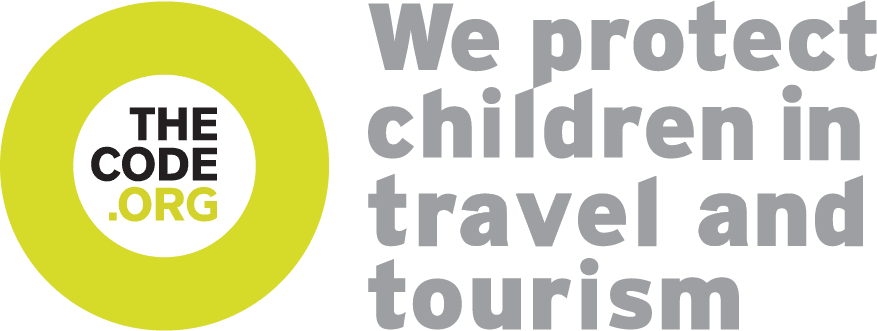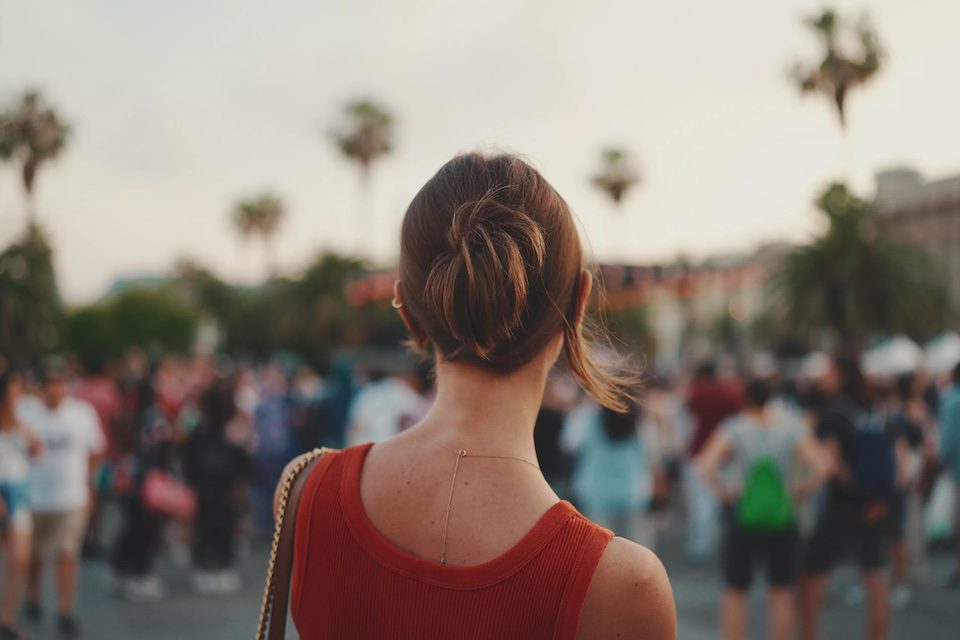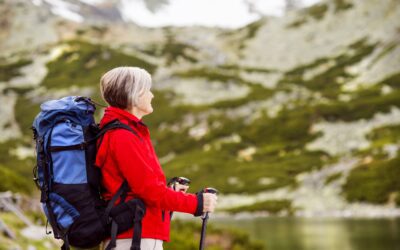Last updated on March 27th, 2024
Featured image: Though largely unseen, human trafficking is pervasive and occurs widely around the world | Photo from Envato
Human trafficking happens everywhere — here’s how you can help
by Carolyn Ray, Editor, JourneyWoman
Editor’s Note: This article mentions sexual assault and human trafficking which may be uncomfortable and triggering topics for some. However, we believe it is a subject that deserves attention and awareness. Special thanks to Sandy Biback from Meeting Professionals Against Human Trafficking (MPAHT), Amina Mohamed, Tonya Fitzpatrick of World Footprints, Tracey Breeden, and Joan Keddell from ITMI, who have helped to educate me and our Women’s Travel Advisory Council for their advocacy of this issue, and to my daughter, Alyxandra, who initially made me aware that human and sex trafficking is happening in Canada through her studies at university.
According to the United Nations, human trafficking is a massive problem, with estimates ranging as high as 50 million people worldwide. No country is immune to this crime, and as caring and curious travellers actively moving around our world, we have an opportunity to see things that others don’t. As keen observers of people, communities and cultures, we can help make our world safe for everyone. That includes understanding the pervasive and growing trend of human trafficking.
Often described as a modern-day form of slavery, human trafficking involves the recruitment, transportation, harbouring and/or exercising control, direction or influence over the movements of a person in order to exploit that person, typically through sexual exploitation or forced labour. Sex trafficking is a form of human trafficking that involves recruiting, moving, or holding victims for sexual exploitation purposes. his is not to be confused with human smuggling, which involves illegal border crossings, human trafficking often occurs in our own neighbourhoods, communities and even our own homes.
Police-reported incidents of human trafficking show that 96% of victims are women and girls. Bad actors prey upon members of marginalized communities and other vulnerable individuals, including Indigenous women and girls; migrants and new immigrants; 2SLGBTQI+ persons; children and youth in the child welfare system; those who are socially or economically disadvantaged; and migrant workers who may be particularly vulnerable to exploitation and abuse.
“As of 2020, Statistics Canada reported that: 3,541 incidents of human trafficking have been reported to police services in Canada between 2011-2021. 83% of incidents of human trafficking were reported in census metropolitan areas. 96% of victims of police-reported human trafficking were women and girls.” (Source: Public Safety Canada)
The connection between human trafficking and travel
As a major economic driver, creating 1 in 10 jobs around the world, the travel and tourism industry has recently started taking steps to ensure that as the industry grows, child protection is taken into consideration. There are several travel products that put vulnerable people at risk of exploitation, such as voluntourism, orphanage tourism or mega events.
Wars and conflicts, such as the crisis in Ukraine, increase the possibility of trafficking in and outside of conflict areas. Displaced and vulnerable populations such as Ukrainian refugees are a known cause for spikes in human trafficking cases, according to the 2022 Global Report on Trafficking in Persons, published on January 24, 2023. A new report from the United Nations Office on Drugs and Crime (UNODC) predicts a 5% increase in detected Ukrainian human trafficking victims in 2023 and 5.6 million Ukrainian asylum applications in Europe.
Vulnerable populations of girls may also be tricked into work situations where they think they are getting a chance at a better life and pay for “courses” to train them for work abroad, only to learn that they are now indentured slaves in the sex trade. Case in point is the daily migration of girls out of Uganda on planes headed for Saudi Arabia.
“Human traffickers prey on the desperation of people affected by conflict and humanitarian crises in countries of origin, transit and destination. We need strong action to reduce vulnerability to human trafficking, also in times of crisis, and close cooperation if we are to effectively prevent and combat the crime,” says Ghada Waly, Executive Director of the United Nations Office on Drugs and Crime (UNODC). Approximately two billion people, equating to over a quarter of the world’s population, currently live in conflict-affected countries.” (Source: United Nations Office on Drugs and Crime).
How do you know if someone is being trafficked?
According to the Canadian Centre to End Human Trafficking, signs of human trafficking include being controlled by others, being driven to and from locations, and escorted at all times; not having a passport or other forms of valid ID in their possession, or may have excess cash and hotel keys.
A victim may act in a fearful, anxious or submissive manner, or be fearful of law enforcement or immigration services. They may be dressed in age-inappropriate clothing, or items inappropriate for that time of year, or show signs of physical abuse or being actively restrained.
The National Human Trafficking Hotline says that people may be vulnerable to trafficking if they have unstable living conditions, have previously experienced forms of violence such as sexual abuse or domestic violence, are facing poverty or economic need, or are addicted to drugs and alcohol. Possible scenarios might include a friend, family member, student or worker who is ‘newly showered with gifts or money’, or is involved in a fast-moving, asymmetric (eg difference in age or financial status) romantic relationship. Or, a person who is offered a job that seems too good to be true.(read more here).
Ashley Smith Thompson is a case response specialist for Polaris, a nonprofit based in Washington, D.C. that operates the US Human Trafficking Hotline. In 2021, the Hotline received 50,123 signals, including calls, texts, online chats and tips.
“We can put ourselves at harm because we don’t know the signs to look for,” Smith Thompson says. “If you want to protect yourself and protect others, and you want to be a safe person, then you should care about human trafficking.”
Read More: Six Tips to Stay Safe Online
What can we do about human trafficking
Women’s safety advocate Tracey Breeden has been at the forefront of this issue in her roles at Match and Uber, where she created training and partnerships with Polaris and NoMore to prevent and disrupt human trafficking.
“As travellers, we can help disrupt and prevent this from happening,” Breeden says. “If somebody is acting in a way that does not act like the typical traveller, the typical traveller is going to be the first to notice that. You’re a community with multiple eyes, all over the place, and you can see something that somebody else may never see. But you would never want to intervene. Because that person can be very dangerous and with such a power and control dynamic, the victims are in a state of fear.”
“As a woman myself, I think it’s very important just to know about human trafficking in general, as women, as mothers, as wives, as friends, as daughters, as grandmas,” Polaris’ Smith Thompson says. “Because we’re women, we want to make sure people are taken care of, they’re being safe. Sometimes, because we are not educated on the facts, we focus on the wrong things, and we record the wrong things.”
“At this moment, men, women and children are being trafficked and exploited all over the world: 2.4 million have been trafficked into forced labour worldwide of these, 600,000 to 800,000 are trafficked across borders each year and 12,000 children are working as slaves on cocoa plantations in West Africa.” — Ruth Dernley, CEO, Stop the Traffic
Three Myths of Human Trafficking
1. It doesn’t happen here
Human trafficking happens everywhere in the world, even in Canada and the US.
“People don’t realize that this is pervasive in every country, and particularly in North America,” Breeden says. “It is just as bad in North America as it is in any other country. When you look at the statistics, it’s similar to sexual violence. There are countries and regions where you’ll see slightly higher numbers. But the numbers are high across the world. And it’s happening every day in the US.”
According to Breeden, the other misconception that people think it only happens during large events like the Super Bowl.
“The reality is, it’s happening every day,” she says. “It’s happening in neighborhoods. And it’s happening sometimes right, you know, right next door to us, and we don’t even know it. As I started travelling the world, talking to law enforcement, I found it was a trend around the world. Traffickers leverage transportation networks in every country.”
Since 2007, Polaris has operated the National Human Trafficking Hotline, a program of the US Department of Health and Human Services. The hotline provides specific services for victims and survivors of human trafficking, seven days a week, 24 hours a day and holidays.
Polaris’ Smith Thompson says that people are trafficked by their own families and by their parents, yet they don’t identify as victims because they don’t realize that they are a victim.
“Human trafficking is something that happens every single day, every minute of the day, all day, and all night. Right now, someone is being trafficked. Right now, a child is at school and their teacher, or you know, someone at school is watching them on the playground, and they think that’s their friend. Someone right now is not in school because their parents had them out here working because they need them to or be out here had them engaging in commercial sex without their consent.” —Ashley Smith Thompson, Polaris, a nonprofit based in Washington, D.C. that operates the US Human Trafficking Hotline (1-888-373-7888 | Text 233733 (Befree)
2. It doesn’t affect me
Because human trafficking is so pervasive, travellers have an opportunity to see things that others don’t.
“It’s so pervasive that it just goes unseen,” says Breeden. “The more we are educated about these things, and can identify them, then we can all work together to help disrupt it and intervene.”
Polaris’ Smith Thompson says that trafficking doesn’t just affect survivors. “Honestly, it affects everyone. It affects survivors. It affects people that are the innocent bystanders, it affects their family members, the children. It affects everyone who has ever come in contact with a survivor.”
In 2022, as a result of the pandemic, Polaris saw a change in how traffickers recruited victims.
“We saw a huge percent increase in the recruitment by family members, intimate partners in both sex and labor trafficking,” she says. “Recruitment by family members and intimate partners were particularly pronounced as such in situations. Forty-two percent of sex trafficking victims were brought into trafficking by that family member, and 39 percent of trafficking victims were brought in by an intimate partner, or a marriage proposal.”
During the pandemic, traffickers have had to get creative, using social media platforms and dating platforms to build trust with potential victims.
“They use the Internet, they use social media platforms and dating apps,” Smith Thompson says. “Now that the world is slowly opening back up, we have seen an increase and I think our numbers will still stay high with social media platforms.”
She says that on digital platforms like Facebook or Instagram, someone sends a message that says something like ‘you look pretty’. Sometimes, the messages offer to pay for someone’s bills.
“Some people are in a very vulnerable situation where they are seeking that kind of love and affection,” she says. “People are responding to those messages. Sometimes it’s like the catfish story where you’re meeting someone and you think oh, no, we’re both online, we’re both looking for love. But really, they’re trying to build your trust so that they can take advantage of you. Sometimes people meet people online, and they talk to them for years, and or months. They’re saying, when you turn 18, come live with me here. And they never even met this person, but they are making plans on leaving, and they count down the days, and then they leave. And then sometimes their families never see them again.”
Or, she says, your friend is involved in sex trafficking, and you want to make some extra money.
“So they recruit you and then you’re stuck,” she says.
“These past two years, due to the COVID-19 crisis, have undeniably influenced the nature of human trafficking and the number of victims. UNODC’s 2021 Report on the Effects of the COVID-19 Pandemic on Trafficking in Persons and Responses to the Challenges shows that traffickers took advantage of the global crisis, capitalising on peoples’ loss of income and the increased amount of time both adults and children were spending online. It is, therefore, paramount to increase our efforts to prevent and tackle this increasingly complex and hidden crime..” (Source: United Nations)
3. There’s nothing I can do
Experts say that as travellers, we should never get directly involved in a human trafficking situation. Instead, we should go to those who are trained to respond, including staff from hotels, airlines, or transportation companies.
“If you see and hear things that lead you to believe a person may be trafficked, then the next role of the traveller is to don’t just be silently ignore it,” Breeden says. “If you’re at a hotel, or on an airplane, definitely notify a flight attendant. Notify the hotel front desk, because the hotels are training people to manage these situations.”
Polaris agrees. “The TSA, the flight attendants, staff at the airports, most of them are trained on identifying the signs or recognizing the signs of sex trafficking specifically,” she says.
Human trafficking is a complex subject and a topic we plan to continue covering. If you have questions or resources to suggest, please reach out to [email protected].
What we can do
According to the CODE, an organization that provides awareness, tools and support to the tourism industry there are several things we can do to prevent human trafficking.
Do
-
- Report child abuse immediately
- Choose travel and tourism companies that implement child protection standards such as members of The Code
- Do your research before volunteering abroad, especially with children
- Seek out alternatives to giving money to children begging or selling things on the street
Don’t
-
- Don’t engage in sexual activity with anyone under the age of 18 years
- Don’t visit or volunteer in orphanages or residential care facilities
- Avoid giving gifts directly to children or taking them anywhere alone
For travellers: Volunteer Checklist For Responsible Volunteering Abroad
When you’re looking for a volunteering placement abroad you can quickly feel completely overwhelmed by the thousands which are available to choose from! How are you supposed to tell which ones are responsible and ethical and which ones aren’t? We’ve put together a handy checklist that will help you when deciding which overseas volunteering experience you wish to give your time and money.
Internet Safety tips from the United Nations
Human traffickers have become adept at using internet platforms, including social media channels, online marketplace sites, and free-standing webpages to recruit victims and attract clients. Learn how to protect yourself.
For Tour Companies: Volunteer Tourism Guidelines (prepared by the ABTA)
A practical guide for travel companies delivering volunteer tourism experiences. These best practice guidelines have been developed in consultation with a wide range of organisations to assist with understanding the range of issues and support activities that make tourism a positive means for change. Learn more here.
Resources to learn about human trafficking
If you think someone is a victim of Human trafficking, contact:
Canadian Human Trafficking Hotline, 1 833 900-1010, 9-1-1, or your local police
National National Human Trafficking Hotline at 1-888-373-7888
In other countries, call emergency services, or organizational hotlines. For a full list when travelling, consult the NO MORE Global Directory.
The Canadian Centre to End Human Trafficking
Check Hotel websites for their statements on modern slavery like Hilton, Marriott and IHG.
JourneyWoman is a member of The CODE, which is operated by ECPAT, the only international NGO network solely dedicated to the fight against the sexual exploitation of children. The Code (short for “The Code of Conduct for the Protection of Children from Sexual Exploitation in Travel and Tourism”) is a multi-stakeholder initiative with the mission to provide awareness, tools and support to the tourism industry to prevent the sexual exploitation of children. Learn more here.

Industry advocates against human trafficking
Airline Ambassadors International (AAI) is a non-profit organization which began in 1996 with a small group of airline personnel using their travel benefits to help orphans and vulnerable children. AAI members educate and advocate for child protection by providing training on human trafficking awareness at airports and other locations. Visit their website here.
ITMI (International Tour Management Institute)
ITMI is a socially-conscious travel and tourism educator working hard to ensure all travel and tourism professionals are educated and empowered with the information about human trafficking as to how to spot and safely stop it in its tracks. Joan Keddell has developed a training course to help travel and tourism professionals, who are often on the front lines of the war against human trafficking, put an end to this atrocious crime
Uber
As a technology company engaged in the transportation space, Uber signed ECPAT’s The Code in 2016 and also provides training to drivers. Uber partners with leading organizations such as ECPAT-USA and Polaris to mobilize communities, raise awareness, and advocate for policy and legislation.
Airbnb
In January 2023, Airbnb announced that it is the first home-sharing platform to sign ECPAT’s The Code, affirming that it has implemented and will continue to support its six governing criteria designed to reduce the risk of sexual exploitation and trafficking of children, in a commitment that spans Airbnb’s platform policies, supplier contracts, employee training, stakeholder engagement, awareness raising and annual reporting on progress.
Truckers Against Trafficking
Truckers Against Trafficking (TAT) is a 501(c)3 that exists to educate, equip, empower and mobilize members of the trucking, bus and energy industries to combat human trafficking. Human trafficking has been reported in all 50 states, and the number of victims in the United States is estimated in the hundreds of thousands. While illegal, human trafficking is a booming business. Traffickers recruit out of our schools, online, in shopping malls, as well as the streets and other locations. A large percentage of the people trafficked are women and children. Many of them are used in the sex industry. They are the prostituted people on the street and in private homes, and in legitimate businesses such as restaurants, truck stops and motels. They need to be identified and recovered.
Meeting Professionals International (MPI)
MPI Global and the MPI Anti-Human Trafficking Committee are committed to raising awareness within the MPI Chapters and their communities by creating an education-in-a-box that can be implemented with each chapter worldwide. These educational components focus on identifying victims and if a victim is identified, what should be done.
More on Empowering Women
Meet Joy Fox, 89, the First Recipient of the JourneyWoman Evelyn Hannon Solo Travel Award
Featured image: Joy Fox is the winner of the first annual Evelyn Hannon award | Photo by Adrienne Guinn, Vital Image PhotographyWith decades of solo travel experience, Fox says if she can do it, so can you by Carolyn Ray It's an honour to announce Joy Fox as the first...
On International Women’s Day 2024, JourneyWoman Celebrates Women Over 50 Leading The “Second Female Travel Revolution”
On International Women’s Day 2024, JourneyWoman celebrates women seeking and creating purposeful travel experiences.
New Annual JourneyWoman Travel Awards Honour the Wisdom, Purpose and Innovation of Women Over 50
For our 30th anniversary, JourneyWoman is announcing four new awards for women over 50, including the Evelyn Hannon Solo Travel Award. Nominate a solo traveller or entrepreneur by April 30, 2024.






In Long Brach, CA the women’s restroom’s toilet stalls have a sign that is directed at women who might be victims of human trafficking. It is a checklist telling them what to do in order to escape. I suspect that the idea came from ex Mayor Robert Garcia who is now in Congress.in his civilian life he taught Communications at CSULB.
This summer in Long Beach a woman running a laundromat saved an under age female who had been kidnapped in Texas. The woman noticed the kidnappers suspicious behavior and saw a Help Me note from the 13 year old.
https://abc7.com/texas-kidnapping-long-beach-police-department-13-year-old-girl-rescued-teen-with-help-me-sign/13528088/
In the women’s toilet stall at LGB (Long Beach CA) there is a memo to potential human trafficking victims with instructions on how to get away. Probably put there by ex Mayor Robert Garcia who is now in Washington DC in Congress. Before he was a Communications professor at CSULB.
Last year, a Long Beach woman owner of a laundromat intercepted a sex trafficker that had kidnapped a 13 year old girl from Texas.
Thanks so much for your advocacy and your concern by bringing attention to this extremely important issue!